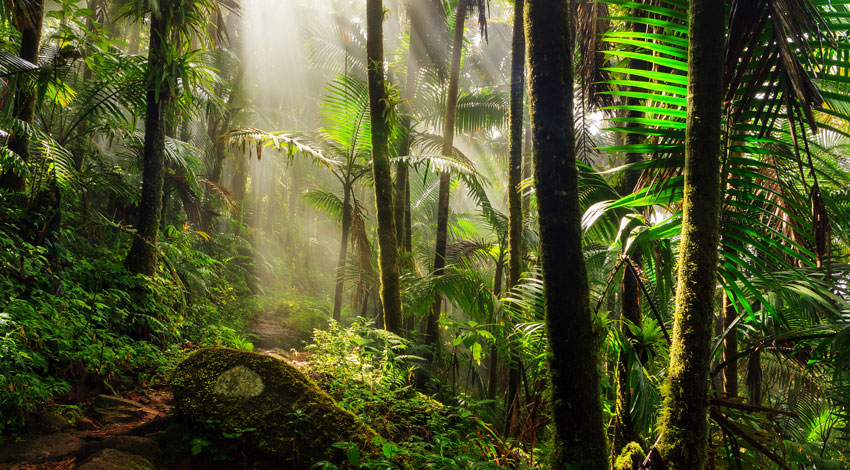Road Scholar’s Carbon Offset Initiatives for 2024: A Greener Future Awaits
At Road Scholar, we’re on a mission to make our learning adventures more sustainable, and I’m Bryn, the organization’s new Program Sustainability Manager. My role is to ensure that the choices we make align with our core values of sustainability. In a previous blog, we highlighted some exciting initiatives aimed at making our programs greener. Today, let’s dive into the world of carbon offsetting and explore why we’ve chosen this path to bolster our sustainability goals.

So, What Exactly Are Carbon Offsets?
Carbon offsets are like a global trade system for reducing greenhouse gases in the atmosphere. Essentially, they allow us to balance out the carbon emissions we produce by investing in projects that reduce or remove an equivalent amount of carbon from the atmosphere. Each offset credit represents one metric ton of carbon removed from the atmosphere. Road Scholar has funded projects that offset the amount of CO2 created by flying 89,278,790 miles in economy class, which is the equivalent of planting over 294,384 seedlings and allowing those trees to grow for 10 years!
Our Partners and Their Impact
To achieve some of our sustainability objectives at Road Scholar, we’ve teamed up with two innovative organizations to help us fund carbon offset projects. The first is ClimeCo, a global leader in sustainability, that focuses on tackling greenhouse gases and creating a cleaner environment through a variety of projects. Here’s where our investment through ClimeCo goes:
- Nitrous Oxide Abatement in Florida: Nitrous oxide is a potent greenhouse gas, and this project, in partnership with Ascend Performance Materials, uses advanced technology to reduce its emissions. ClimeCo was represented at a recent summit at the White House where there were announcements on new domestic and international actions to reduce the emission from these super pollutants.
- Landfill Gas-to-Energy in New Bedford, MA: Landfills are significant sources of methane, a potent greenhouse gas. This project captures methane emissions from the landfill and converts them into renewable energy. The process not only reduces greenhouse gas emissions but also provides a cleaner energy source for local communities.
- Carbon Sequestration in Campeche, Mexico: This reforestation project focuses on planting native trees in degraded areas of Campeche. These trees absorb carbon dioxide from the atmosphere as they grow, effectively sequestering carbon and restoring vital forest ecosystems that support biodiversity and help regulate the local climate.
- TONTOTON’s Plastic Recovery in Vietnam and Cambodia: TONTOTON is a social enterprise addressing the massive problem of ocean-bound plastic waste. By employing local community members, primarily women, this project collects plastic waste from beaches and rivers. The plastic is then processed into fuel and used in cement production, providing both environmental and economic benefits to the community.
Sustainable Travel International (STI) is the second organization we’ve partnered with. They support projects that protect vital ecosystems, and through them we have helped fund:
- Larimar Wind Farm in the Dominican Republic: This wind farm is located in a rural area with high tourism but limited economic benefits. It generates clean energy, reducing the reliance on fossil fuels, and directly benefits the local community by creating jobs and improving infrastructure and health services. By generating 265,000 metric tons of clean energy annually, it significantly cuts carbon emissions.
- Biochar Project in Thailand: This project creates biochar—a stable form of carbon produced from agricultural waste. Biochar is used to improve soil health, increase agricultural productivity, and sequester carbon in the soil. This not only enhances soil fertility but also reduces greenhouse gas emissions from agricultural practices.
- Peat Swamp Restoration in Borneo: Peat swamps are critical carbon sinks, storing vast amounts of carbon and providing habitat for endangered species like orangutans. This restoration project works to rehabilitate deforested peatlands, reversing the effects of industrial agriculture. It also supports local communities by creating jobs, formalizing land rights, and improving public services.
- Forestry Project in Keo Seima Wildlife Sanctuary, Cambodia: This project focuses on conserving and restoring forest areas in the Keo Seima Wildlife Sanctuary, a biodiversity hotspot. Protecting these forests helps preserve wildlife habitats, supports local communities through sustainable management practices, and sequesters carbon, contributing to climate change mitigation.
Why We Chose These Organizations
We selected ClimeCo and STI because of their unwavering commitment to both environmental and social impacts. These organizations adhere to the highest standards for sustainability, constantly reassessing their projects to ensure they deliver real, positive changes.
Beyond Offsetting: Our Commitment to Reduction
While carbon offsets are a vital tool to protecting our planet, they’re just one part of our sustainability strategy at Road Scholar. We’re also dedicated to reducing plastic and food waste on our programs and enhancing the positive impact we have on the communities we visit. We believe that while offsetting is beneficial, minimizing emissions is even better. We’re excited about the changes underway and are committed to evolving into an even more sustainable organization.
Stay tuned as we continue this journey and share more updates on our efforts to build a more sustainable future.
About the Author
Bryn Geddes is Road Scholar’s Program Sustainability Manager. She has a background in project management and a master’s degree in Sustainable Tourism Management. She lives in Colorado and loves to spend time hiking and running in the mountains, preferably with a dog.
